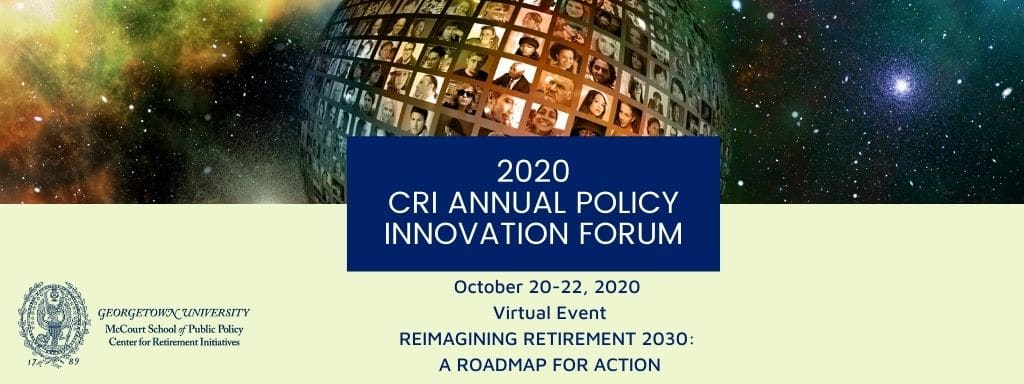
By 2030, all baby boomers will be over the age of 65, Generation X will start to retire, and millennials will be in their prime working years. How we work and how long we work will continue to change. The COVID-19 pandemic has only served to highlight the financial fragility of millions of Americans and how many have nothing saved for retirement or emergencies.
Important demographic and economic shifts will require leaders to come together to rethink access, savings, investment, and income strategies that will facilitate innovation, strengthen the economy, improve retirement security, and support overall financial well-being. What can — and should — policymakers, stakeholders, and the private sector do in the next five to 10 years realistically to make measurable progress toward building financial resiliency and improving today’s defined contribution (DC) retirement systems? Or, as Time magazine predicted in 2014, will 2030 be “the year that retirement ends”?
The Georgetown Center for Retirement Initiatives (CRI) held a three-day Policy Innovation Forum that explored the trends, challenges, and solutions to shape the path forward for the next decade.
Visit our Forum webpage for agenda, speakers, and presentations.
